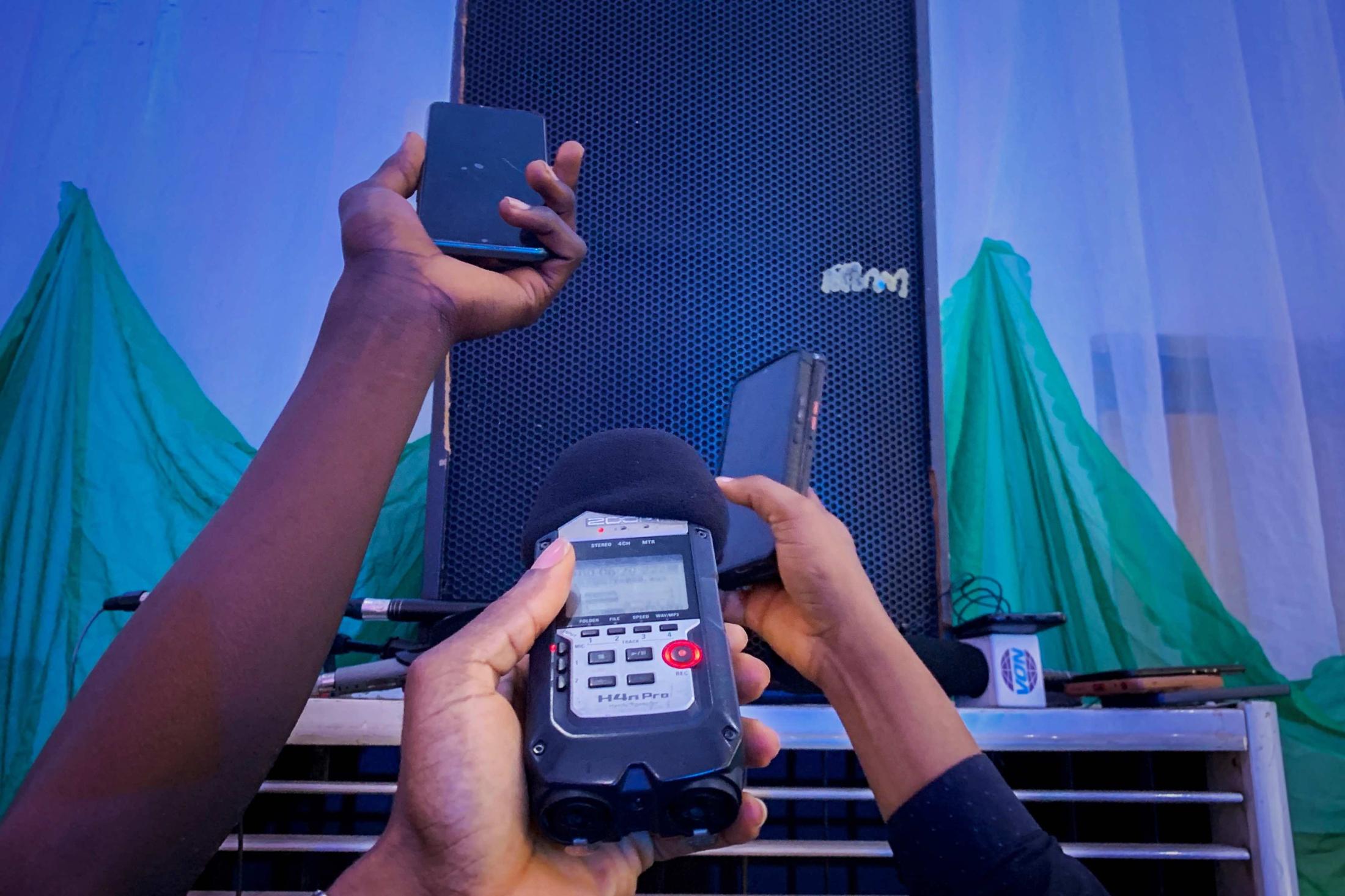News
Field notes from a freelance journalist in an automated world.
samuel okocha
Aug 19, 2025
The 62-year-old billionaire founder and CEO spoke in a conversation at the Milken Institute’s Global Conference in Beverly Hills, California, in May 2025. “You’re not going to lose your job to an AI, but you’re going to lose your job to someone who uses AI.”
That warning runs across industries, including journalism.
My media career began over 15 years ago on the radio. As a university student, I worked as a DJ and music presenter. Later, I became a news desk editor and anchor at Voice of Nigeria, the country’s official external radio service. I spent 15 years there before voluntarily retiring in 2023 to focus entirely on freelance and independent journalism.
Meanwhile, those early roles profoundly shaped my understanding of storytelling and audience engagement from multiple angles.
Today, a recent Microsoft report identifies many writing and media jobs—including those I once held—among the most vulnerable to AI automation. The 41-page study, which analyzed how AI tools like Bing Copilot affect various professions, placed writers and authors fifth on the list of jobs exposed to automation risks. Broadcast announcers and radio DJs ranked tenth. These findings underscore the growing influence of AI on traditional media roles.
The journalism opportunity
However, while routine tasks such as drafting, summarizing, and certain levels of fact-checking can be automated, opportunities are emerging for the core work of journalism that remains deeply human.
“The distinct human writer becomes more essential,” writes Dr. Mario García, CEO of García Media, in his Nieman Lab essay on journalism predictions for 2025.
García predicts that journalists will lean into an “I was there” approach, embedding personal perspective and lived experience into their work. He calls this “their signature, or what I call the scent of the writer.” In a landscape flooded with automated content, it’s this human imprint that will distinguish meaningful journalism from what is now being called machine-generated noise.
“As AI-generated content becomes ubiquitous,” García adds, “the qualities that define human writing—authenticity, emotional depth, and creative intuition—will become even more critical, ensuring that a writer’s presence is felt throughout a narrative.”
That’s good news for enterprising journalists, especially freelancers, who think on their feet and deploy a solution-driven mindset as they straddle multiple outlets and bring value to diverse audiences.
Having witnessed firsthand the importance of skills-building for job security long before the rise of AI, I know that journalistic value extends far beyond clear writing.
Interests and skill-set as leverage
Early in my career, I realized the power of on-the-ground reporting. As a news desk editor, I frequently relied on stories produced by field reporters. That experience sparked my interest in freelance journalism and multimedia storytelling, expanding my skills beyond radio to include photography, video, and digital content.
These competencies allowed me to produce work for TV packages, radio sound-rich reports, online formats, or combinations thereof for several global news outlets, anchoring my multimedia skill set in core reporting, news gathering, and compelling storytelling.
This broad skill-set has only grown more valuable in the AI era. I can deploy AI tools creatively and ethically more effectively because of my foundation in multimedia journalism. The story is likely going to be different for journalists who primarily work from offices.
But with combined experience on the news desk and in the field, I have also learnt that access and being on the ground aren’t enough. It’s what you do while there that matters. Add that to what you do before and after, and you begin to build a robust approach to distilling useful information for the public and niche audiences.
That’s where AI becomes a powerful assistant, speeding up services like transcription (I used to spend hours transcribing interviews), data analysis, and summaries for journalists who have already done the heavy lifting.
And while I’m not suggesting multimedia skills are the only path to relevance, I believe journalists who tap into what makes them unique—location, access, skill stack, knowledge base, and curiosity—grounded in the fundamentals of reporting, research, fact-checking, and clear communication, will continue to be valuable in an evolving media world.
Good journalism still matters.
A lot has changed with AI, yet nothing really has changed.
Even before AI became mainstream, the industry faced challenges with low-value reporting. In Nigeria, where journalists work under difficult conditions that include low pay, tight deadlines, and little support, I refer to it as “megaphone journalism.” It’s news content that echoes what sources said without adding interpretation, context, or absolute value.
The issue is not limited to Nigeria.
It’s a concern that has long resonated in countries known for enterprising journalism. US-based journalism scholar Jay Rosen, writing as far back as 2009, described such reporting as “he said, she said” journalism, low-cost reporting that focuses on meeting deadlines rather than research-driven work that answers deeper questions, such as why, for the audience.
In a nutshell, AI will only amplify the noise—aka low-value work—for those who don’t know what to look for.
The road ahead
And so, as AI reshapes media production, the difference between mediocre and meaningful journalism will remain in meaningful human touch.
I’ve seen this firsthand in my work with editors and publications.
Journalists who cultivate deep, versatile skills and use AI as a tool—not a crutch—will continue to provide valuable, trustworthy reporting and work that helps audiences navigate a complex world. And they will be in demand by media outlets and publications that share in that value.
582

